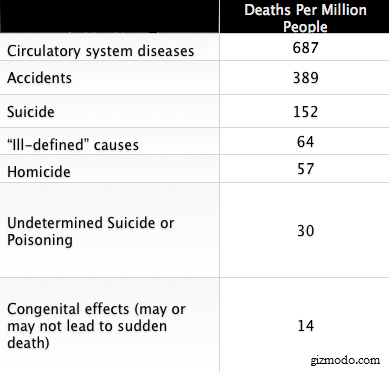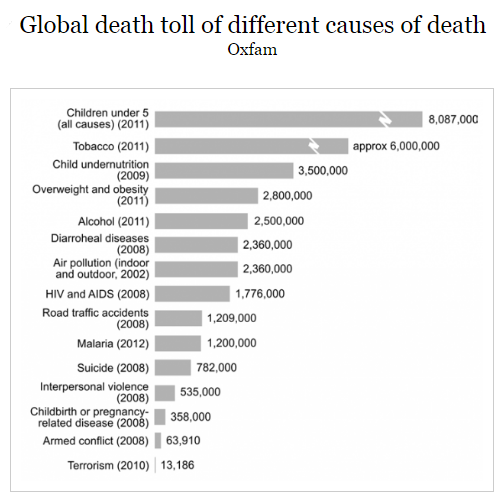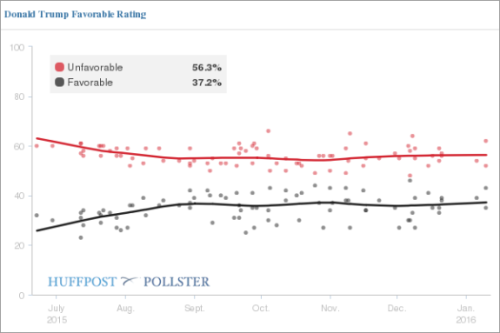I never liked biology.
|x|=(TT)
Even before I was a superhero, I was gifted. My intelligence just a little too far outside the bounds of the bell curve. It wasn’t even intelligence, not really; not as I’ve come to understand the term. It was … insight.
When I was eleven, some fellows from the government came to see me. They weren’t interested in the fact that I’d build something that could probably vaporize a city if scaled up correctly in my dad’s garage, which was a surprise; what I’d later realize was the first fumbling steps toward a teleporter. No, they were interested in my science project: enhanced frogs, intended to help the species repopulate and bounce back from the edge of extinction.
I turned them down, of course. I didn’t want to be that guy. But it bothered me that the government – the military, if I was honest with myself – were interested in my frogs.
I turned that same insight that had told me how to mix chemicals so my frogs would grow up big and strong, and have lots of babies, and breed true, on something new. I asked that part of myself why the military guys would be interested in my frogs; at which point, of course, the answer was obvious – trivial, even – and I felt silly that I had ever wondered. Embarrassed, even.
And that might have been the end of it, if I hadn’t kept thinking about my frogs.
I had looked for insights into how to make my frogs stronger. And I’d found them. Now I wondered what would happen, when I released them into the wild.
It was, of course, obvious. I stopped doing much biology, after that.
>=}O
We were all pretty gifted, my little team. We had to be. We were the best, and “the best” has no respect for bell curves.
I had singlehandedly rebuilt NASA. Nobody mentioned it, of course, but it was true. There were maybe five people who could have done that – more now, of course – and I had been the only one to try. I’m still quietly proud, of that.
I’ve long since considered the why of why we were so gifted, of course. It’s hard to get truly solid answers to these things. We were all a little bit … inhuman, I suspect. John was unruly, had difficulty with boundaries; Susan had difficulty in social situations. Benjamin can plot movements, forces and vectors and breaking points, better even than I can when I turn my mind to it – which is saying something, believe me – but he was just a little too quick to use those trajectories and stress points to take someone apart if they go in his way.
And I was … myself, I suppose. It could have been Asperger’s, or ADHD, or simple emotional problems; but it wasn’t.
We weren’t entirely human, even then.
And then we went to investigate a comet that wasn’t a comet, like a cloud of exotic gas skimming the atmosphere; and then we got superpowers, and then everything went to hell in a handbasket.
XO
I’m not actually all that worried about supervillains, in the end.
Sure, we’ve been getting steadily better at human enhancement since the 40s; and sure, pieces of magical god-tech occasionally fall from the sky and give some god-forsaken eye beams or whatever. And sure, some of them will occasionally use that for evil. That’s not what concerns me.
I’ve heard the occasional supervillain rant at me about the Neanderthals, about how my kind or theirs has to be wiped out, because this planet is a small place and supers will inevitably outcompete the others. I’m not particularly worried, honestly. It’s like seeing a disabled person ranting about how it’s them or us, no species can possibly survive in the same ecological niche as an identical species that also has legs.
I’ve never taken military contracts, myself, but I know plenty of people – good people – who have. Heck, I have good friends who were made in military contracts. There’s really only so much ability to kill people a single person can have, and the military already has that power.
No. But let me tell you a story.
Sa
Once upon a time there were two kingdoms in the desert; the Ussians and the Ussars.
Now, the two kingdoms really had a great deal in common, from an outside perspective – even their names sounded similar, and they had similar beliefs and ways of life, although the Ussars were somewhat poorer – but, as is so often the case, they had different religious beliefs, and so considered themselves bitter enemies.
Now, the Ussars were quite worried, because a magician who worked under the Ussians – Alberto – had recently summoned a powerful demon, which destroyed their only mutual enemy, the Naztecs. These Naztecs were thoroughly nasty people – they were aggressive conquerors, and they practiced blood sacrifice of their own people and of captured children – and they were their enemy to boot, so both kingdoms were glad to see the back of them. But still, it was worrying to see that they had so much power.
Indeed, the Ussars feared that the Ussians might summon the demon against them, and it would devour their land, too; so that the Ussians would live alone in the desert, and rule supreme among the desert-dwelling nomads. So they sought out a wizard of their own, and compelled him to learn for them the name of the demon; and they swore a mighty oath, sealed with magic, that should the Ussians attack they would summon the demon themselves and set it upon Ussian kingdoms. And the Ussians swore this oath as well.
And so there was peace, if an uneasy peace; and all was well, but for the petty atrocities all kingdoms commit from one time to another against rebels or the poor.
But one day, two bands of them met in the desert. There was a mountain there, which some said was filled with gold – although in truth some say it was barren, and they were fools – and they quarreled over who had rights to it.
Now the story diverges. Some say that one man drew his dagger and stabbed another; while others said that a snake sprung up from the undergrowth and struck him.
And the chief of the Ussars had to make a dreadful choice; for he was sworn to send at once to destroy the Ussians if they attacked his subjects, and he knew they were sworn to destroy him and his own, if they saw the demon on the horizon. But he truly did not know if they had done so. Was he to destroy them both over a rattlesnake in the desert?
The king slept fitfully that night, and when he awoke, he sent a letter urging restraint to all his men, and forbidding the wizard to take action, for he did not believe the Ussars were such fools that they would do this thing. And that day, the king of the Ussars fell from his tallest tower, and the oath was broken, and both kingdoms swore less binding treaties to hold them to peace – although neither truly wished to give up the power the demon granted them to defend themselves.
Again, uncertainty: some say the king threw himself from the tower, for he saw that such mistakes were inevitable, and his death was the only path that did not end in an empty desert and the demon’s mocking laughter. Others say he was forsworn that day, and the gods hurled him from the tower for breaking his oath. Others still say that the gods saw that he believed the reports that the Ussians had attacked, and they acted to destroy him before he could wipe out his subjects.
Myself? I think his aide wrote the orders to stand down, after hurling his master out the window – before he could ensure both their deaths, and the two kingdoms alongside them.
@
It’s obvious that my genius does not exactly extend to writing. Still … I think it’s a story worth telling. As you’ve doubtless guessed, it’s a true story; it could be based on one of a dozen such incidents from the height of the Cold War. Perhaps I’ll knock together a scriptwriting AI that can polish it later.
The average supervillain is capable, given time and a lack of organized opposition, of leveling a city. Some are capable of less, or of more subtle (but no less damaging) forms of destruction. Some – myself included – are capable of much, much more.
I once fought a man who could call down planet-killer asteroids from the sky. One of my closest friends once created an AI – a flawed upload of his simulated brain – that was quite capable of turning the world’s nukes on us had it not been stopped. I, personally, have destroyed far too many of my inventions after I thought to ask myself whether they could destroy the entire planet and found the answer not to my liking.
The military has, on the quiet, people who can level a city block with their bare hands, or dodge and weave through an entire squadron of soldiers and machine-gun fire, or blow people up or whatever. I don’t really care that much. Sure, a war fought with superpowers could be devastating, but no more so than a war fought with conventional weapons. And if they go rogue, well … it’s not as if treason is a new concept to most militaries
But every day, someone enhanced with some supersoldier formula has a child, or a company brings out a product that makes you a little closer to superhuman, or someone … gifted, like me, has an accident near some hi-tech machinery that makes them a bit more gifted.
And society simply doesn’t know how to cope when civilians can divine someone’s secrets with a few minutes work, or construct a bomb capable of levelling buildings in their kitchen, or 3D print a gauntlet that will let them blast a hole in someone’s chest if they piss them off.
Vigilantism helps hold things together, when there are only a handful of telepaths and geniuses and gods. Now. But every day we all get a little bit more advanced, a little more powerful; and one day we’re going to be powerful enough that we can’t restrain each other.
And then someone will end the world, not because they’re a supervillain, but because of some stupid mistake. And it won’t be their fault. It’ll be the fault of all of us, the scientists and visionaries and so-called geniuses who made everyone a little bit more powerful in exchange for making ourselves a lot more powerful.
Who did you blame, in the story? The soldiers? Or the kings?
.
The government has introduced laws, cracking down on superhumans. They’re right, of course. Obviously right.
But everybody prefers making things just a little worse for everyone, in exchange for making things a lot better for themselves; even when they know that everyone is going to keep making things a little worse until we’re all dead.
Vigilantes work to stop the occasional person who goes out of line. They don’t work to enforce laws, not when any real subset of the population wants to break them. For that, you need policemen; and we don’t have policemen for superheroes.
So I’m turning to biology. I can clone the tissue required for most powers; and I have the insight to build technology capable of replicating anything else.
There’s a god sitting on a slab in front of me. I made him. He’s physically strong enough that he would probably cause a nuclear winter if he hit the ground full-force. He has weapons enough to fry effectively anything that gets in his way. It’ll mostly be equipment, hopefully. I have the insight to tell this one how to beat anyone he needs to. There will be others. They’ll help keep the peace, a stopgap measure until we can get more supers to do the job. And they’ll get rid of anyone too powerful to contain.
I’m not an idiot, even if I’m … not a genius, not really. I know what resentment this sort of thing breeds. Imprisonment without trial, summary execution. Legalities aside, I just became a supervillain who makes other supervillains.
But … I asked myself, once. How can humanity survive the next few decades? And the answer was not like this.







 “Yeah, I’m sure the public will continue to warm up to him,” said the man, who declined to give his name in case his neighbours or family found out he was considering voting for Trump. “He’s bravely told his supporters to beat people up, after all, and then bravely lied to people’s faces, claiming that he didn’t promise to pay for their legal fees when they’re inevitably arrested even though it’s on video they can play opposite this astounding claim. I wouldn’t have the guts to do that,
“Yeah, I’m sure the public will continue to warm up to him,” said the man, who declined to give his name in case his neighbours or family found out he was considering voting for Trump. “He’s bravely told his supporters to beat people up, after all, and then bravely lied to people’s faces, claiming that he didn’t promise to pay for their legal fees when they’re inevitably arrested even though it’s on video they can play opposite this astounding claim. I wouldn’t have the guts to do that, 
